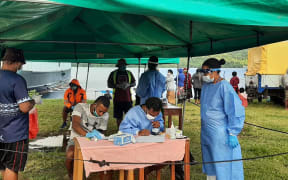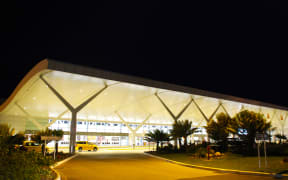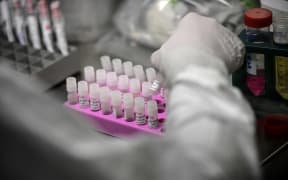Fiji's Health Ministry is concerned that people are not taking the new Omicron variant of the coronavirus seriously.
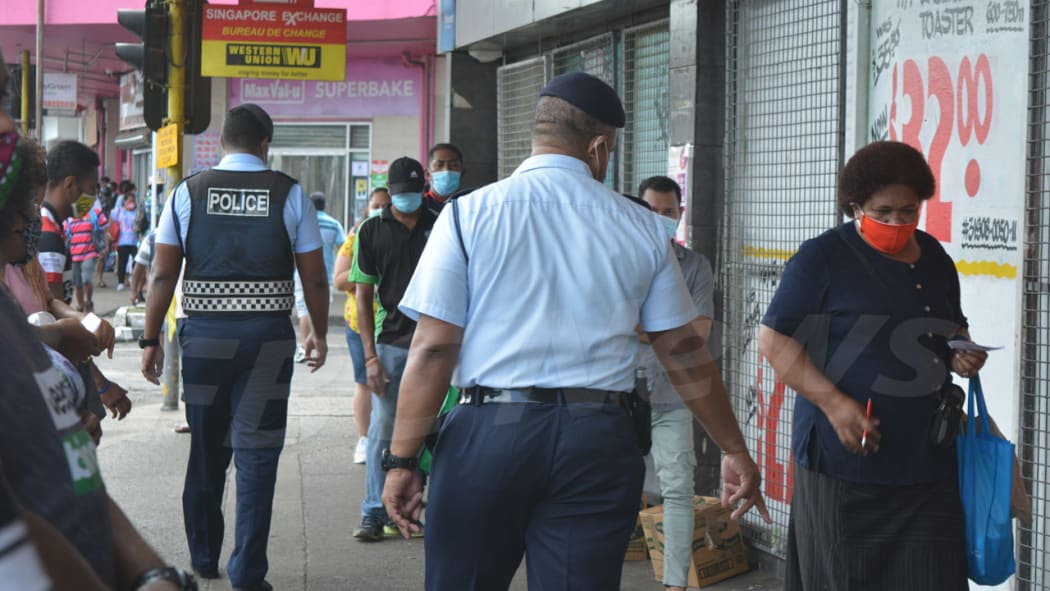
Police ensure Covid-19 protocols are observed by the public. Photo: Fiji govt
Fiji reported two cases of the variant two weeks ago - both patients had arrived in the country from Nigeria on 25 November.
Health Secretary James Fong said more than 70 countries had reported cases of Omicron and it was probably in most countries, even if it hadn't been detected yet.
He said if there was an outbreak in Fiji, it could again overwhelm the health system.
Dr Fong said vaccines alone would not get any country out of the crisis, and that nations must prevent the spread of Omicron with mask wearing, hand washing, and social distancing.
"I anticipate that if we are looking at a third wave right now, based on what's happening at the moment, we are looking at early next year - probably around the January to February period.
"We're concerned that people are dismissing Omicron as mild. Surely, we have learned by now that we underestimate this virus at our peril.
"Even if Omicron does cause less severe disease, the sheer number of cases could once again overwhelm unprepared health systems.
"Vaccines alone will not get any country out of this crisis. Countries can - and must - prevent the spread of Omicron with measures that work today.
"It's not vaccines instead of masks. It's not vaccines instead of distancing. It's not vaccines instead ventilation or hand hygiene. Do it all. Do it consistently. Do it well."
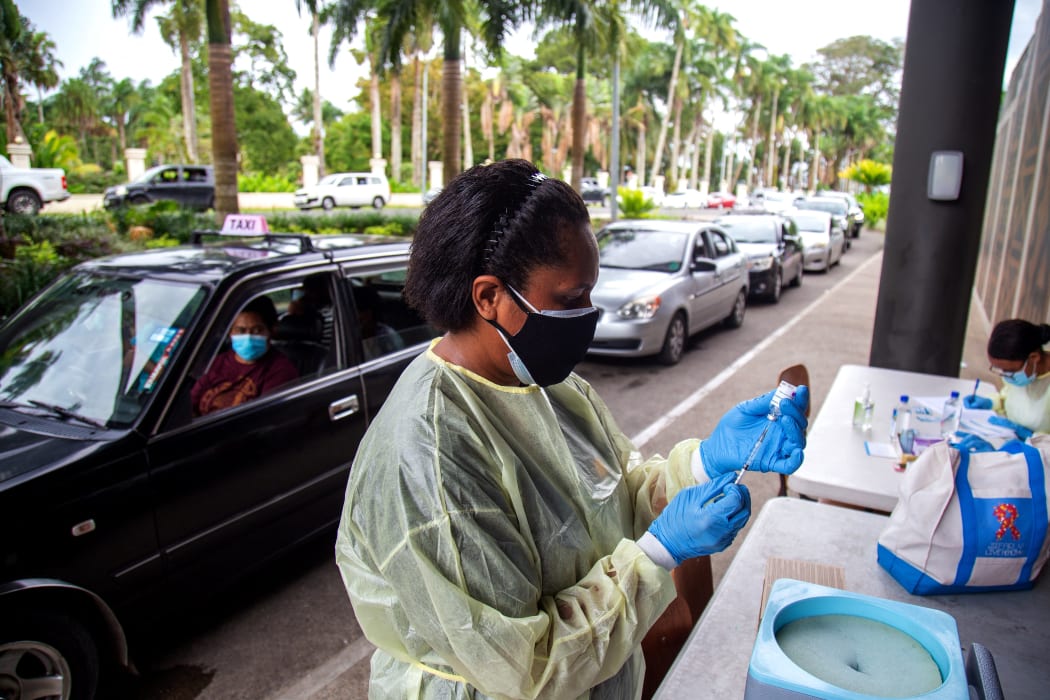
A health worker prepares a dose of the AstraZeneca vaccine for a resident at a drive-through vaccination centre in Suva. Photo: AFP / Leon Lord
Dr Fong also said the evidence suggested a small decline in the effectiveness of vaccines against severe Covid-19 disease and death, and a decline in preventing mild disease or infection.
"If a variant is transmissible enough, stringent border and community measures will only delay the inevitable entry and spread of current and future variants of the Covid-19 virus, especially as the Omicron variant is also spreading into some of our travel partner countries," Dr Fong said.
"To protect ourselves, our loved ones and our country, we must all get vaccinated when it is our turn.
"And even with our high vaccination levels, we must maintain Covid-safe habits: mask wisely by carrying a well-fitted mask when you leave your home and wear the mask properly in public indoor spaces, public service vehicles and outdoor crowded spaces.
"Open windows to improve ventilation; avoid poorly ventilated or crowded spaces; 2-metre physical distancing and ensure you are wearing a mask if you cannot maintain distance; cough or sneeze into a bent elbow or tissue, wash your hands frequently with soap and water or an alcohol-based hand sanitiser.
"The discovery of Omicron is a sharp reminder to ourselves that the key to avoiding future restrictions and lockdowns is for us all to remain cautious about how we engage in the greater freedom we will enjoy.
"Whilst the easing of restrictions is needed to facilitate livelihoods, we must ensure that together with vaccination, we continue to observe our Covid- safe measures and avoid contained spaces and crowds."
Dr Fong said following the Delta outbreak in Fiji, it was understandable that many would feel the urge to relax and celebrate now that case numbers were low, especially during the festive season.
"And many of us have let our guards slip. We are all human.
"But this must stop as vaccination and the Covid Safe measures are the only way to safely navigate our way through the pandemic while facilitating socio-economic recovery and well-being."
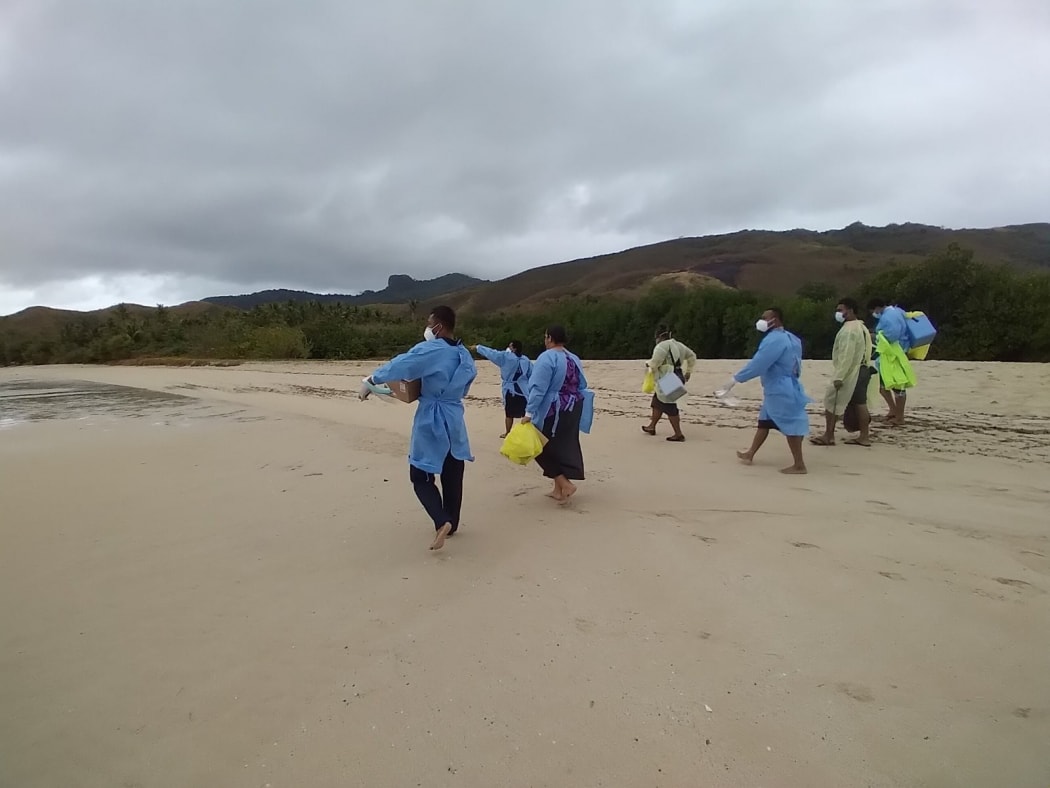
Front-line workers on their way to swab villagers in remote Fiji. Photo: Fiji Health Ministry
19 new cases in community
Dr Fong confirmed 19 new cases of Covid-19 in the community.
This brings the total number of active cases to 116, including two cases of the Omicron variant of the coronavirus, he said. Seven of the latest cases were recorded last Thursday while 12 on Friday.
Dr Fong said there were seven Covid patients in hospital in critical condition.
He said with Fiji's internationals open to tourists, the public is being urged to take Omicron seriously.
"The threat of cases coming in through our borders will always be there for as long as the word pandemic is applied throughout the world. And the only that we can protect ourselves is ensuring good adherence to our Covid health measures."
There are no deaths to report and the toll remained at 697, Dr Fong said.
"We have recorded 612 Covid-19 positive patients who died from serious medical conditions they had before they contracted Covid; these are not classified as Covid-19 deaths," he said.
"For this second wave, there have been 52,553 cases recorded, with 71 percent of the cases from the Central Division, 28 percent from the Western Division, and 1 percent of the cases from the Eastern and Northern Divisions.
"Our National 7- day rolling average is 5 daily cases calculated for 13th December 2021."
Close to 92 percent of Fiji's adult population is fully vaccinated, Dr Fong said, while 97.7 percent are yet to receive their second dose of the vaccine.
He said 38,321 children aged 12-17 are also fully vaccinated against Covid-19 while 57,697 have received their first dose.
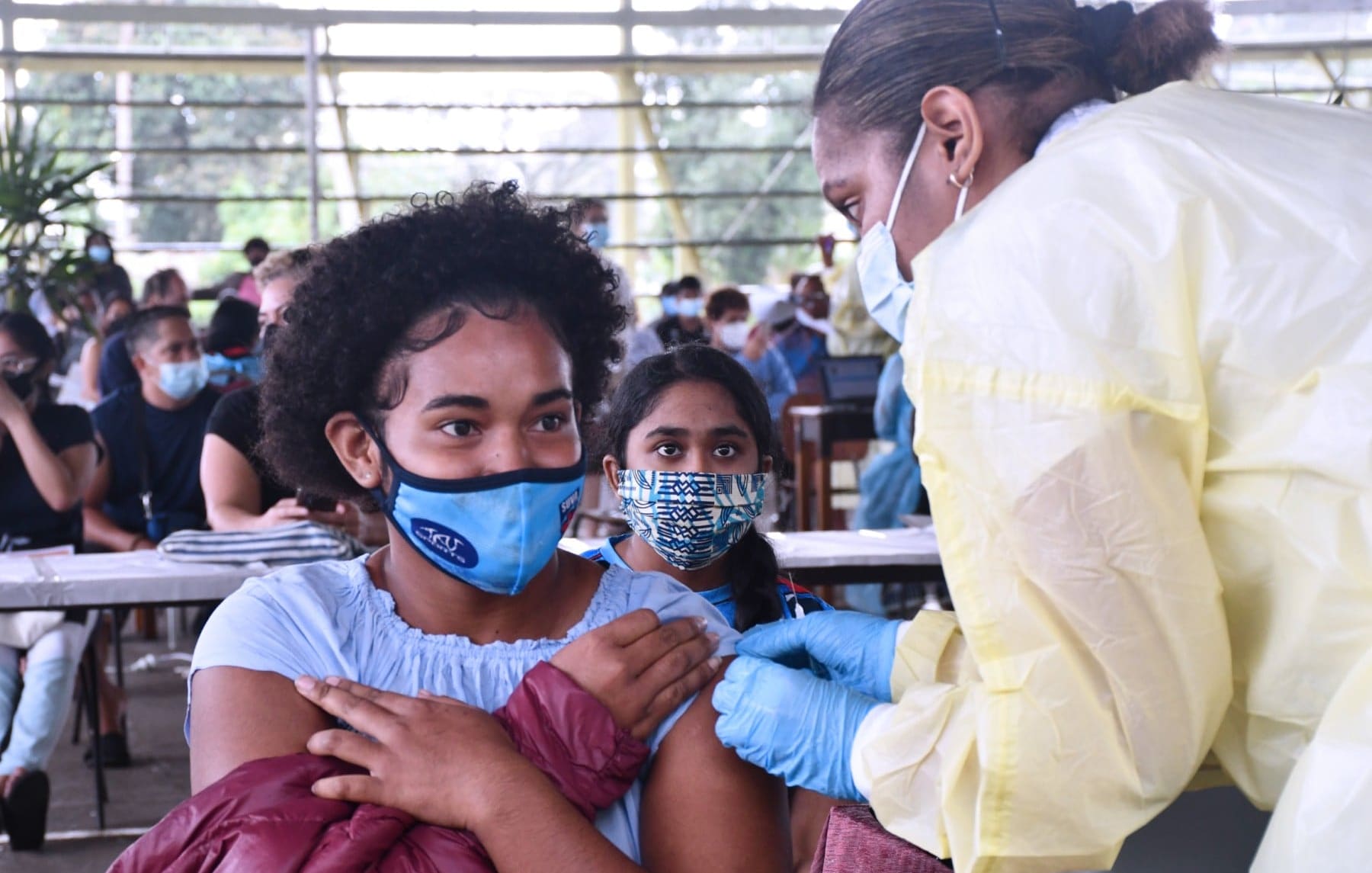
Children and teens being vaccinated in Fiji. Photo: Supplied/ Fijian government

